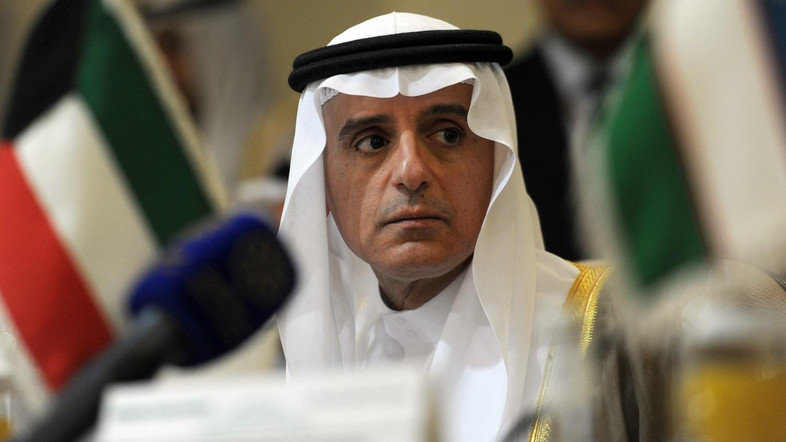
Wonderful to live in peace with Iran: Saudi FM

Relations between Iran and Saudi Arabia was strained after
thousands of people, many of them Iranians, died in a stampede at the 2015 Haj
rituals, when two large masses of pilgrims converged at a crossroads during the
symbolic ceremony of the stoning of Satan in Jamarat.
Following the incident, Iranian authorities slammed Saudi Arabia for being
incompetent in managing Haj rituals, appealing to the Muslim world to hold
Riyadh accountable for the tragedy.
Ties between the two countries worsened when Saudi Arabia executed a Shia cleric
a year ago. The execution angered some Iranian citizens who stormed the Saudi
embassy in Tehran.
Therefore, Iranian pilgrims did not participate in the latest Haj rituals, which
were held months ago, when Saudi Arabia declined to guarantee their safety.
Al-Jubeir expressed optimism about the future U.S. administration’s stance on
Iran, saying Riyadh and Washington agree that Iran’s influence in the region
should be "contained”.
He accused Iran of destabilizing the region and described the regional policies
of the Islamic Republic "aggressive” and "hostile”.
Following the implementation of the nuclear deal that ended nuclear-related
sanctions against Iran in return for some limitation on the country’s nuclear
program, Saudi Arabia, as some analysts say, feared that it may lose one of its
closest western allies, the U.S.
During Obama’s term, Washington aimed at reaching a nuclear deal with Iran as
well as limiting America's role in the Middle East, both of which have been
criticized by Saudi Arabia.
"We will look at the Trump administration’s view as articulated. Wanting to
restore America’s role in the world, we welcome this. Wanting to defeat ISIS
(Islamic State), absolutely. Wanting to contain Iran ... absolutely,” said Al
Jubeir, urging the upcoming U.S. President Donald Trump to take a more active
role in the region and a more aggressive stance against Iran















